In a nutshell, the health insurance marketplace is a resource where individuals, families, and small businesses can go and compare health insurance plans for coverage and affordability, get answers to questions about their health care insurance, find out if they are eligible for tax credits for private insurance or health programs like Medicaid or Children’s Health Insurance Program (CHIP), and enroll in a health insurance plan that meets their needs.
The law that addresses health insurance coverage, health care cost, and preventive care is called: The “Affordable Care Act” (ACA) and is the name used to refer to the final amended version of the comprehensive health care reform law and its amendments. The Health Insurance Marketplace functions like an internet health insurance exchange, giving individuals and small businesses the opportunity to evaluate health insurance and make informed decisions about what plan to purchase.
Long gone are the days of shopping around to multiple providers for health insurance quotes, being restricted to a single cost-prohibitive plan, or being denied insurance because of a pre-existing medical condition. The Health Insurance Marketplace is your one-stop shop to find your perfect fit health care plan. I would say the greatest service Marketplace offers is if your employer doesn’t provide insurance, you can find and get insurance through the marketplace. An individual or a business can access the Marketplace and review and compare health care options, get health insurance quotes and compare prices, get an explanation of your health insurance premiums, and compare benefits and coverage options of various health insurance plans.
Presently, the Health Insurance Marketplace is positioning itself as the one-stop online health insurance exchange where you can read about various plans in easy-to-understand language, find out more about price breaks, compare health insurance quotes, and select the right policy for you and your family. The Health Insurance marketplace is also the place for small Businesses to find information and shop for insurance for employees. With the aid of this valuable online tool, small businesses can set a budget for health care costs, evaluate premiums, co-pay, and deductibles, and decide which plan to offer to their employees.
Every state has its own Health Insurance Marketplace, and its operation is determined by the state. In the State, of Ohio, if you purchased health care insurance through the marketplace, you should receive a Form 1095-A (A Health Insurance Marketplace Statement), at the beginning of the tax season. The information on Form 1095-A helps you complete your federal individual income tax return. If Form 1095-A shows coverage for you and everyone in your family for the entire year, you would check the full-year coverage box on your tax return. Effective for 2019 the “Shared Responsibility Payment” (Penalty) is Zero. Among other things, Form 1095-A reports the total monthly health insurance premiums paid to the insurance company you selected through the Marketplace. It lists the amount of premiums assistance you received in the form of advance payments of the premium tax credit that were paid directly to your insurance company. If you purchased coverage through the federally facilitated marketplace and set up a Healthcare.gov account, you can get a copy of Form 1095-A online. The average monthly insurance premium in the U.S. is $215.
In the United States, people can purchase health insurance that complies with the Patient Protection and Affordable Care Act (ACA, known colloquially as, “Obamacare”) at ACA health exchanges, individuals can choose from a range of government-regulated and standardized healthcare plans offered by the many insurers participating in the exchange. ACA health exchanges were fully certified and operational by January 1, 2014, under federal law. Enrollment in the marketplace started on, October 1, 2013, and continued for six months. As of April 19, 2014, 8.02 million had signed up through the health insurance marketplace. An additional 4.8 million joined Medicaid.
Private Non-ACA health care exchanges also exist in many states, responsible for enrolling 3 million people. Private health exchanges predate the ACA. A private health insurance exchange is an exchange run by a private sector company or a nonprofit. Health plans and insurance carriers in private exchange must meet certain criteria defined by the exchange management. Private exchange combines technology, human advocacy, and includes online eligibility verification and mechanisms for allowing employers who connect their employees or retires with exchange to offer subsidies.
In summation the Health Insurance Marketplace was designed and legislated to help consumers find plans personalized to their specific health condition, preferred doctor or hospital network, and budget. Therefore, to answer the question posed by this article title, “what is the Health Insurance Marketplace?” The Future!
